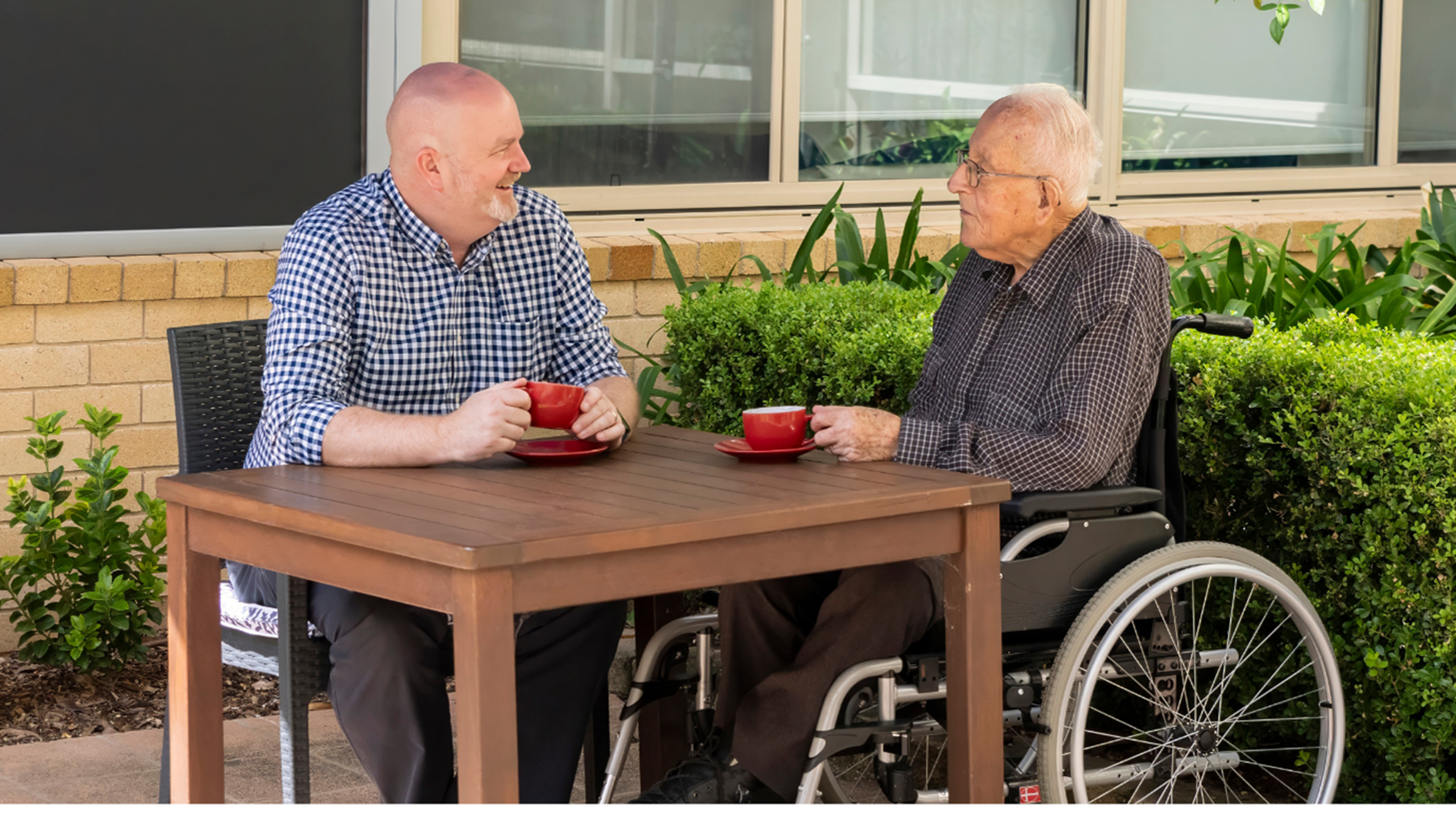21 October 2024
Stories
| Aged Care Homes
Download this article as a printable PDF
What are the benefits of chaplaincy care in older age? Do I have to be religious to receive support from a chaplain? Can my chaplain support me with my faith, even though I’m not a Christian?
When it comes to chaplaincy support in aged care, people often have a lot of questions. And it’s not just because of the frequent misconceptions around chaplaincy - spiritual wellbeing means something different to everybody.
To learn more, we sat down with BaptistCare’s Chaplaincy Manager Carolyn, who spoke with us about the benefits of chaplaincy and why it matters so much in an aged care setting.
Jump to:
What is a Chaplain?
According to Carolyn, the principal role of a chaplain is to care for somebody’s spiritual wellbeing.
“This doesn’t necessarily have to be from a religious perspective, although chaplains do support people in their faith too – whatever they believe,” says Carolyn.
Chaplains believe that every individual is spiritual in some way. Carolyn explains further:
“Spirituality is about what sets your soul alight. For some, this is channelled through religion. For others, it might be spending time with family, listening to music, gardening, or spending time in nature.”
“In aged care, residents can sometimes experience a spiritual void – although they may not recognise it as this,” she says. “They might be living with a physical or cognitive impairment and are no longer able to do the activities that once helped them to cope with life’s challenges.”
When residents are dealing with deep grief, loneliness, or depression, Carolyn says even the best clinical care can still sometimes fall short in helping them to enjoy life again. This is where the work of chaplains comes in.
“Chaplains walk alongside people during these difficult times,” she says. “We meet them wherever they’re at, supporting in a non-judgemental, respectful way, and helping them to reconnect with what they love most in life.”
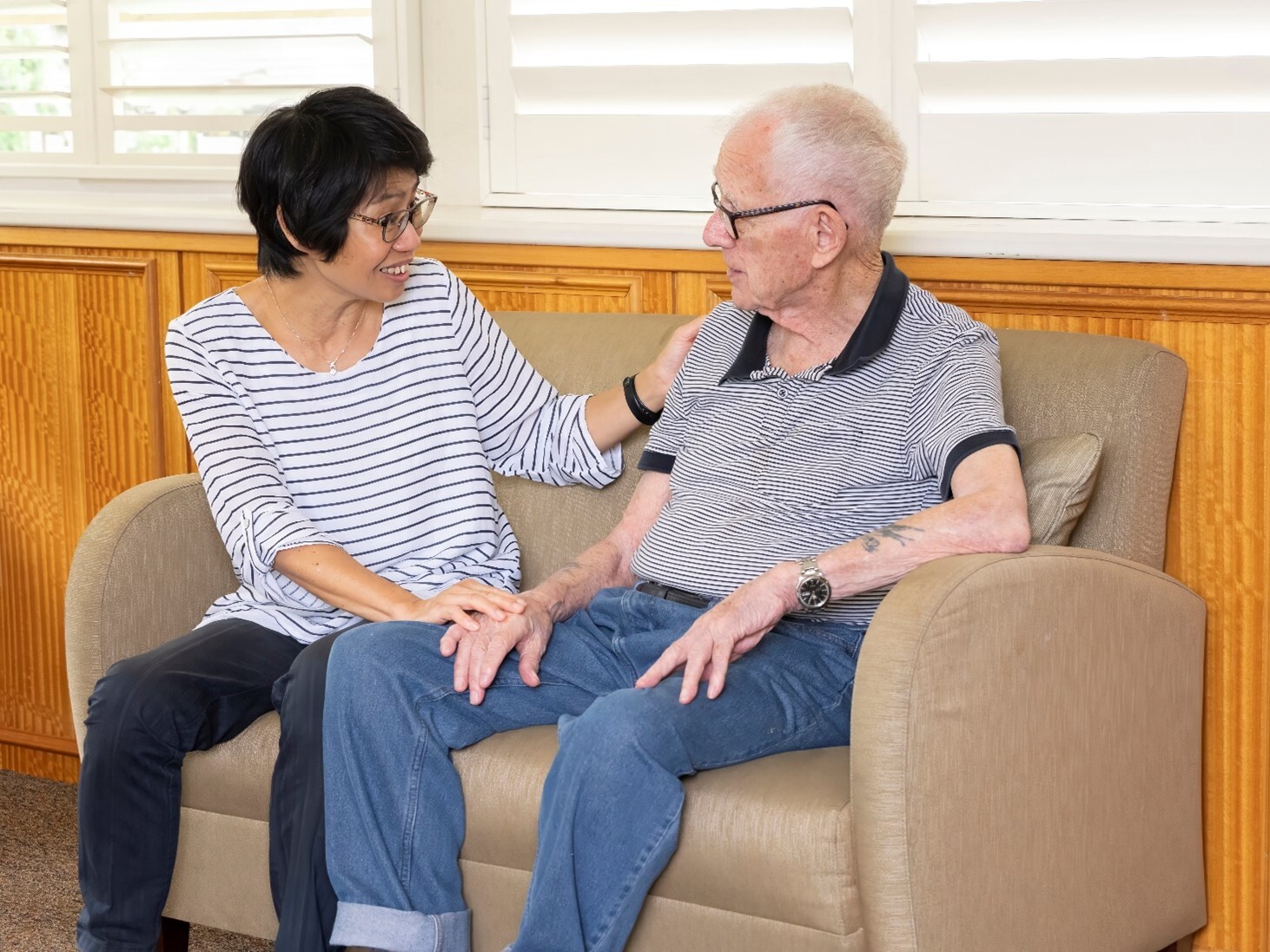
What services can a chaplain provide?
Chaplains can support aged care residents in a number of different ways, including:
- Faith affirmation
- Adjusting to a new stage of life
- End-of-life care
- Group activities such as grief support and spiritual reminiscence sessions
- Facilitating meetings with local religious leaders such as imams or priests.
- Difficult anniversaries
- ANZAC Day and Remembrance Day
- Performing religious rites
- Leading religious services and ceremonies

Why does chaplaincy matter? What are the benefits?
We recognise now that residents’ spiritual and emotional welfare is just as important as their physical health.
In a residential aged care home setting, chaplains work hand in hand with the Lifestyle team. Together, their responsibility is to care for residents’ emotional and spiritual wellbeing.
“Often as we get older, our coping strategies for dealing with trauma and life’s challenges are not as effective,” Carolyn explains. “When residents were younger, they might have used exercise or getting out into nature to manage their emotions. But in an aged care home setting, these activities aren’t always possible.”
Some of the benefits of chaplaincy in aged care include:
- Better connections with those in the care home and the wider community, reducing feelings of isolation and loneliness
- Promoting a safe, supportive relationship with their chaplain, helping to create a sense of comfort and peace
- Encouraging self-awareness among residents, particularly when it comes to mental health, which can enable them to seek further help if needed.
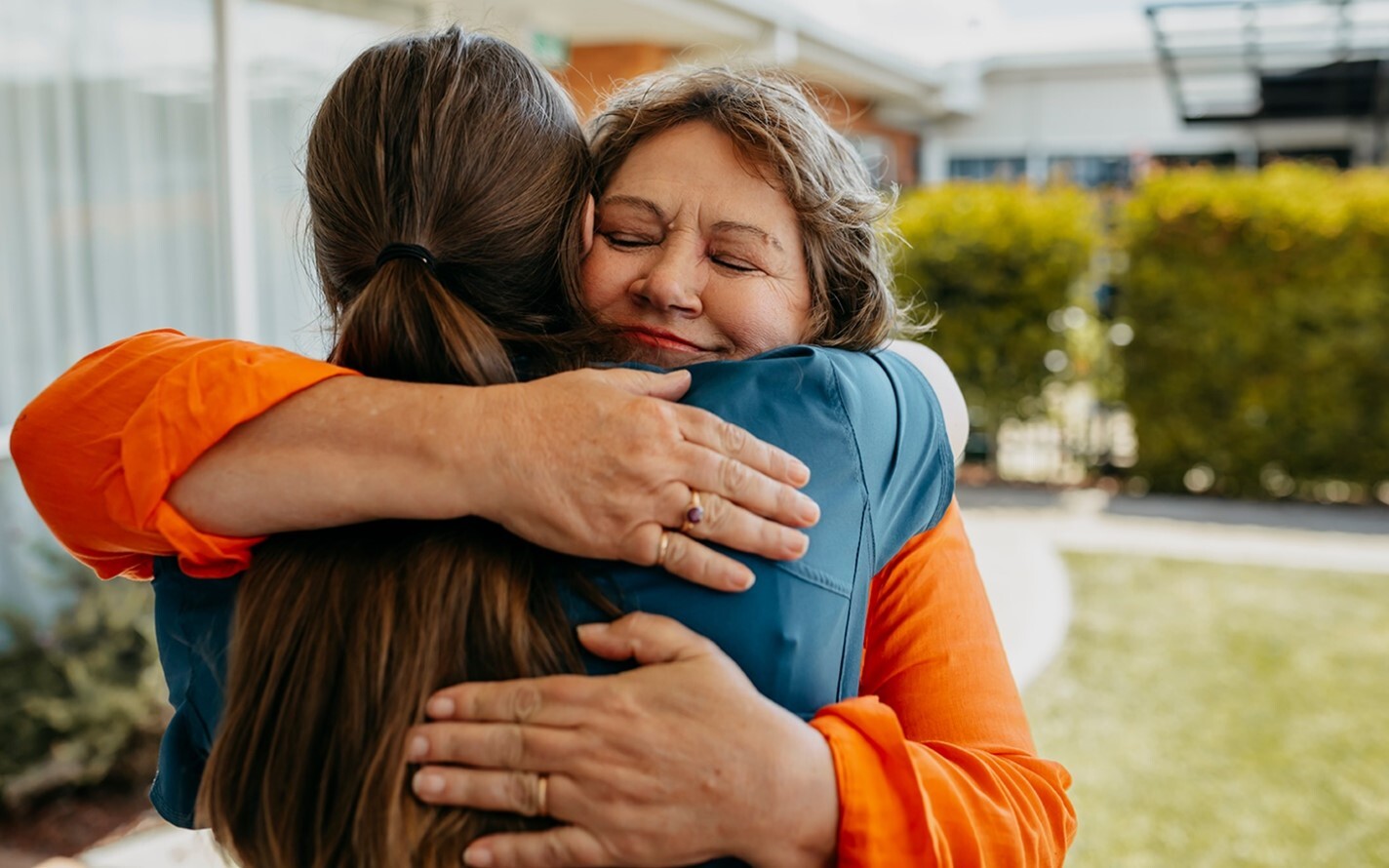
Supporting the wider care home community
“It’s become clearer over recent years – especially since COVID, how much of a difference chaplains make to the entire care home community - residents and staff alike,” says Carolyn.
And with hundreds of employees in each home, there’s no doubt that chaplaincy care supports a healthier, happier, and well-rounded team of aged care staff.
“We’ve supported staff through grief and loss, and of course the huge strain of the pandemic,” says Carolyn. “Chaplains have been there throughout it all, guiding and supporting our community.”
What’s the difference between a chaplain and a counsellor?
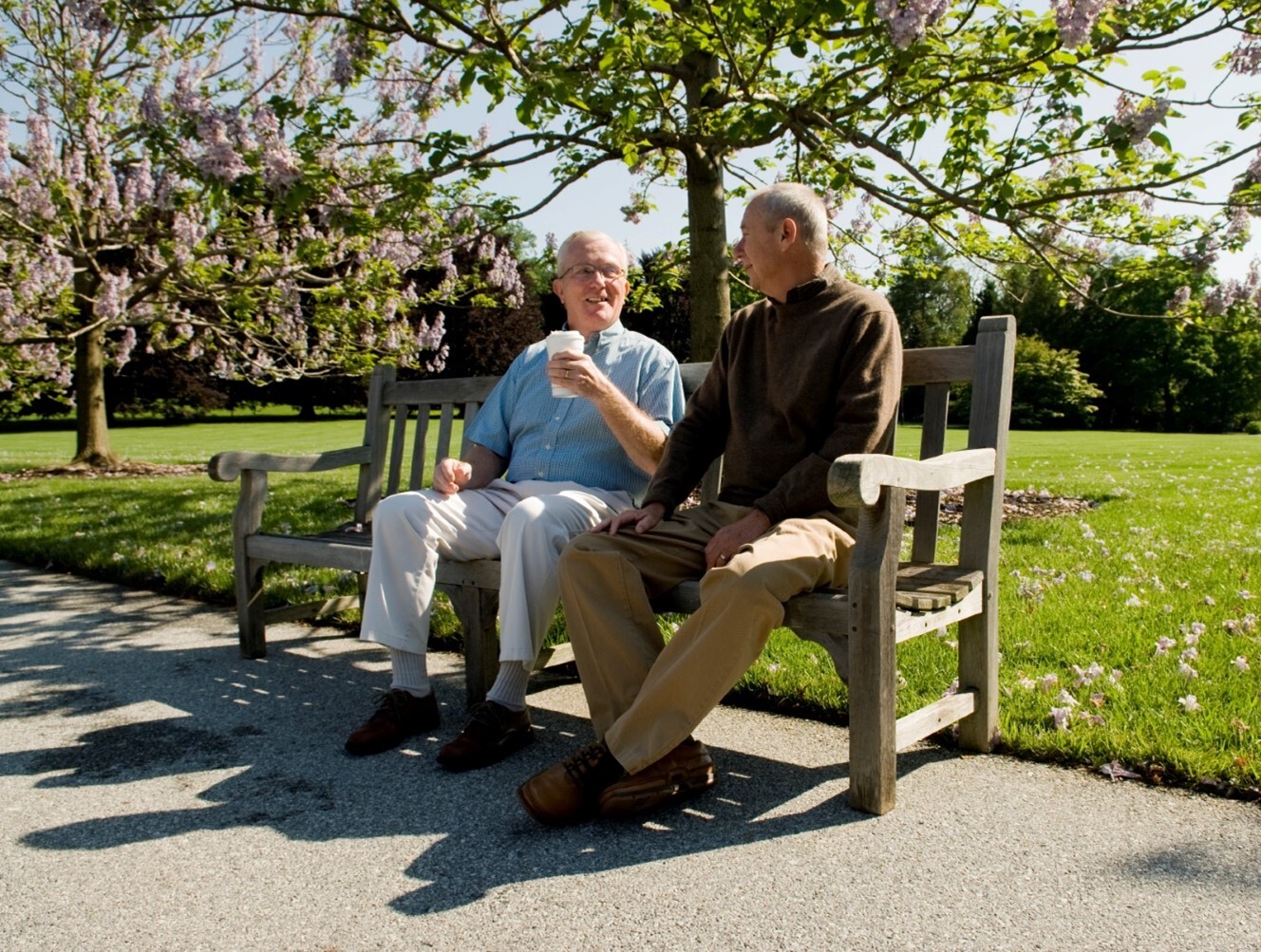
Although chaplains and counsellors both support a person’s emotional wellbeing, they are two very distinct roles.
“A counsellor is someone who treats somebody for a particular problem,” Carolyn says. “A chaplain does not ‘treat’ - they let the person talk about whatever they want to discuss.”
“Chaplains look at the whole person, meeting them without judgement and simply walking alongside them. Sometimes, with support, the individual may find their own way through a situation that is worrying them.”
Chaplains will sometimes ask if a person has talked to their doctor lately or has considered getting other professional support."
"However," says Carolyn, "sometimes people don't want to act on things, and that's okay too. Ultimately, it's their choice and we respect that."
Will my chaplain want to convert me to Christianity?

This is a common question – especially from those who are not religious or who have a non-Christian faith.
The answer is a resounding no.
“At BaptistCare, we respect that each individual has their own beliefs,” Carolyn says. “Our chaplains are there to support them in that journey. We are careful to employ chaplains who understand that evangelism is not their role."
“Whatever your faith or background, our chaplains are there to help you discover meaning, purpose and hope within your life circumstances.”
BaptistCare's values of Respect, Love, Reliability and Empowerment are even more crucial at end of life. Carolyn explains:
“Chaplains come alongside to support those individuals and their loved ones emotionally and spiritually in the way the individual requests.”
What makes chaplaincy at BaptistCare so special?
At BaptistCare, our passion for chaplaincy is deeply rooted and woven into the fabric of who we are.
“It comes all the way from the top - our Board and Executive team greatly value chaplaincy, and this is evident in the ongoing commitment to provide chaplaincy even during challenging financial times,” says Carolyn.
“It’s that deep level of commitment to chaplaincy from our leadership that really sets us apart as an aged care provider.”
The BaptistCare chaplaincy team now spans New South Wales, the ACT, and Western Australia, encompassing over 85 chaplains and more than 80 pastoral care volunteers across most of our sites and services.
How can aged care home residents arrange to speak with a chaplain?
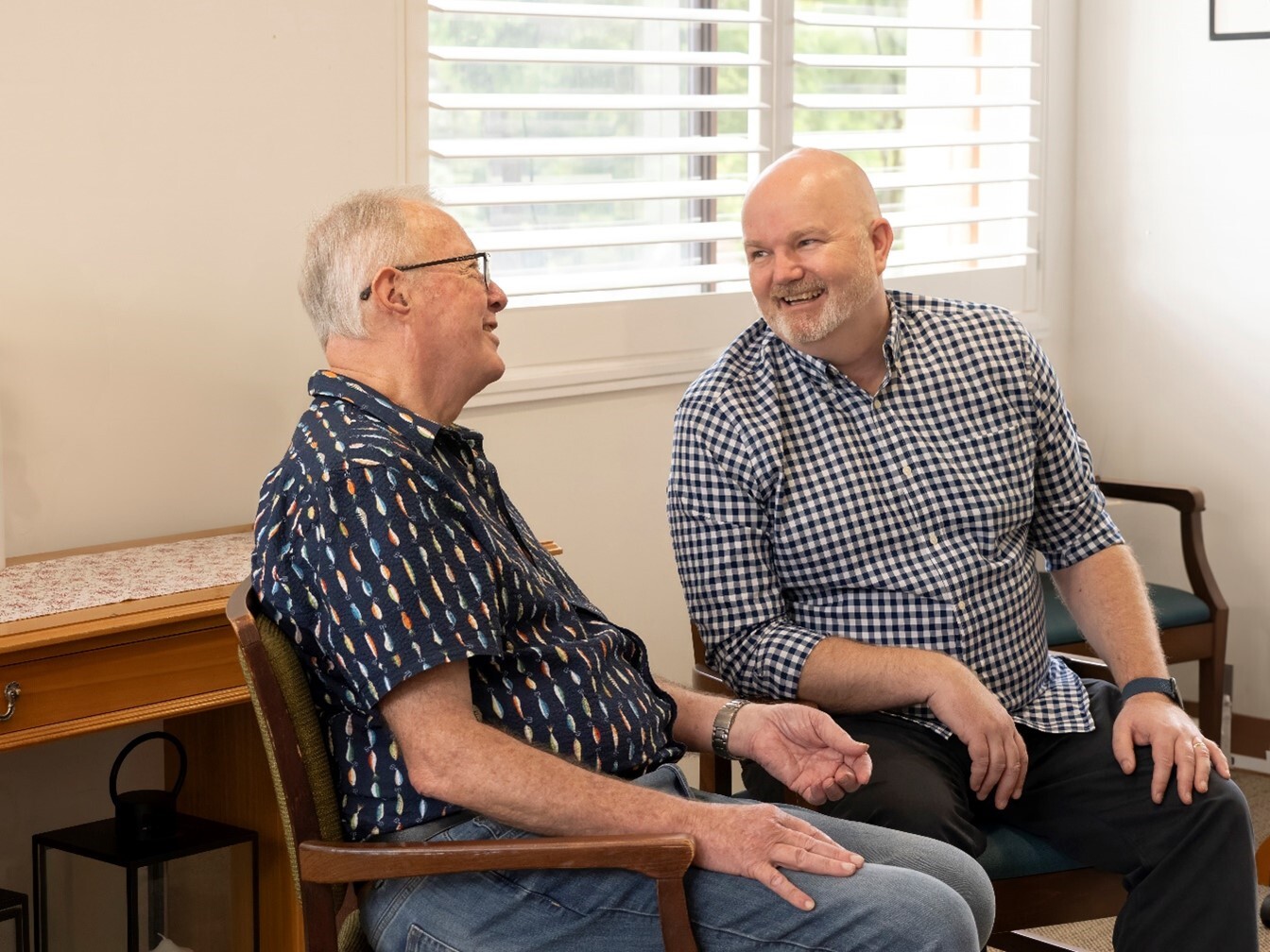
Chaplains will introduce themselves to new residents within the first few weeks of their arrival and start to build a relationship.
“As part of this, we’ll conduct a spiritual assessment,” Carolyn explains. “We find out about their faith, and if they don’t have one, we find out what else is important to them.”
Residents can then speak informally with the chaplain whenever they like, or they can request a meeting through their care staff.
“Care staff will sometimes refer residents to the chaplain if they feel it’s needed,” says Carolyn. “For example, if they think the resident is lonely, grieving or needs to talk through a family situation, they'll ask us to visit them.”
Chaplains are available to speak with family members as well as residents, and families can arrange this through their loved one’s care team.
Find your nearest care home
If you would like to know more about chaplaincy in residential aged care, why not chat with one of our friendly team – we’d be happy to talk further about our services.
We can also discuss your individual care needs and organise a tour around your nearest BaptistCare home.
Use our simple online search tool to explore BaptistCare Aged Care Home locations across New South Wales and the ACT.
Click the link below to learn more about BaptistCare's
Residential Aged Care | MyTeam | Understanding Aged Care | Financial Guide | Find a centre
